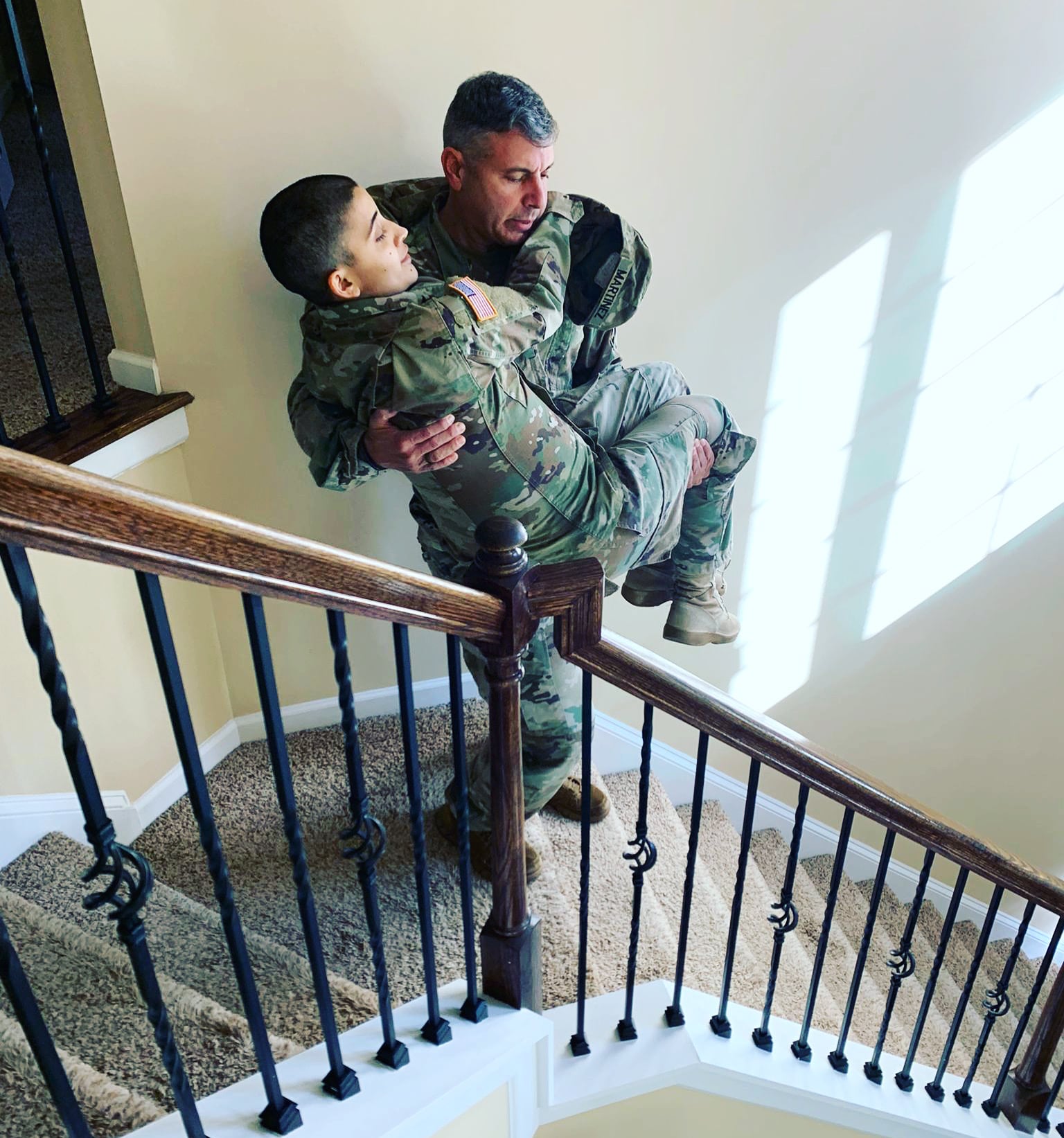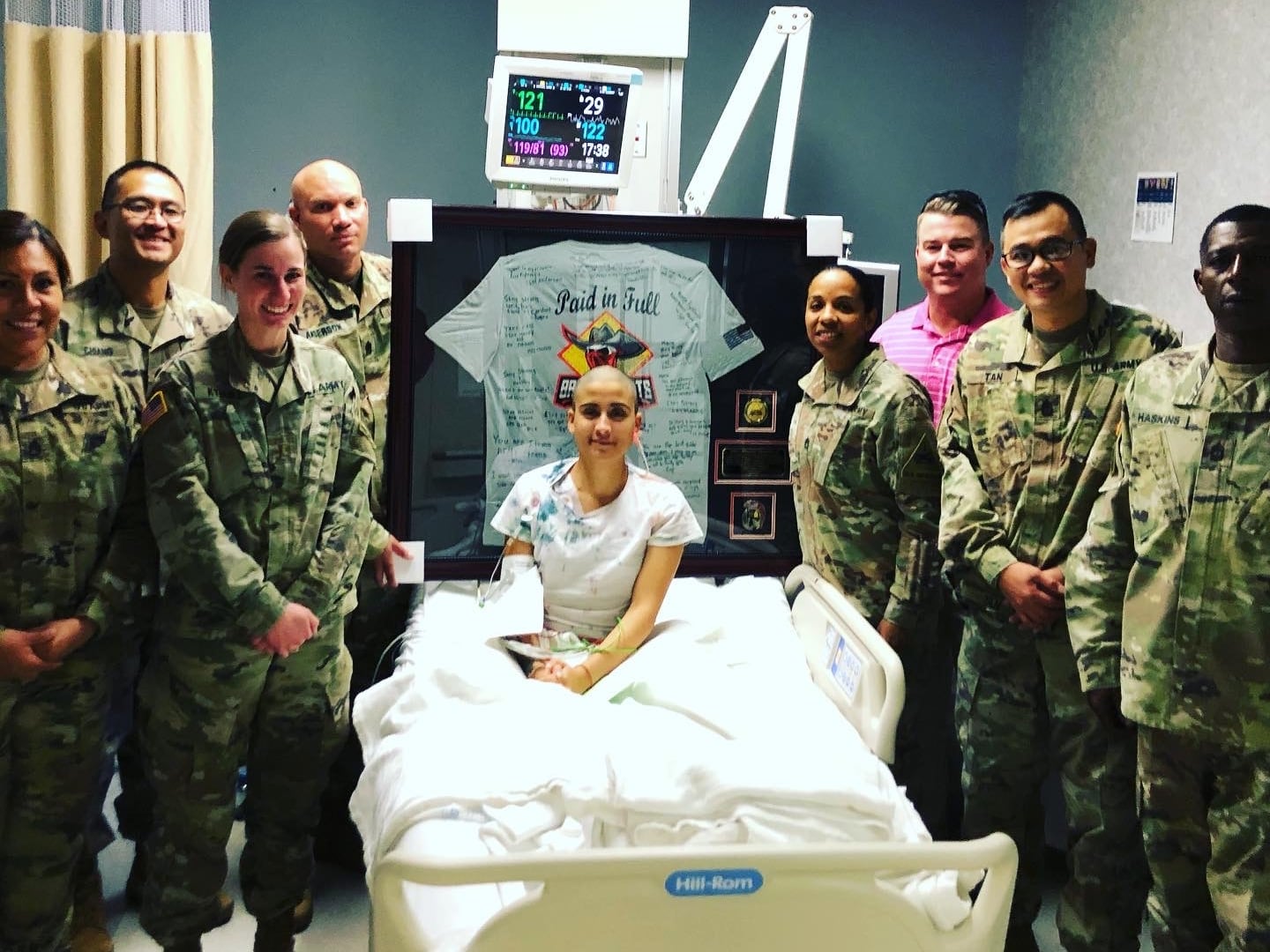Maria Martinez was 26 when she died of breast cancer that her family says would have been survivable if she had received the right diagnosis and treatment from military medical providers. And while two military boards said the medical malpractice suit filed by Martinez before her death in 2021 was invalid because it was filed outside of the two-year statute of limitations, a U.S. district court judge recently ruled that the case can move forward, thanks to a law designed to protect troops from legal liability while in uniform.
On Oct. 31, Judge Rudolph Contreras, of the U.S. District Court for the District of Columbia, denied a motion to dismiss from the Army Tort Claims Division, saying the Service Members Civil Relief Act “tolls” the statute of limitations, or pauses the time clock. It’s a development that Martinez’s attorney, David Sheldon, says marks a victory not just for Martinez’s family, but for all troops seeking to bring medical malpractice lawsuits against the Defense Department.
Reached by Military Times, a Defense Department spokeswoman, Jade Fulce, said the department does not comment on pending litigation.
Martinez, a specialist at Fort Bliss, Texas, first became aware of a serious medical problem in October 2019, when she reported to an emergency room on post with severe shortness of breath, Army Lt. Col. Eduardo Larumbe, Martinez’s father, told Military Times.
“The next thing I know, a doctor’s calling me from a military hospital,” Larumbe said. “[He said], ‘You might want to get on a plane … because I don’t know how long she’s going to last.’”
Martinez was given a biopsy confirming devastating news: she had breast cancer — and it had progressed too far for treatment. However, Martinez’s family says that the specialist had voiced health concerns to military providers ten months earlier, in January, and requested the exact diagnostic test that would have revealed the cancer in time to save her life. Martinez had met with an oncologist and requested a medical screening for breast cancer, knowing she had a family history of breast cancer and possessed the BRCA2 gene mutation, a strong indicator for the disease. But, according to court documents and Larumbe, the Defense Department’s TRICARE health insurance provider denied Martinez an MRI diagnostic screening three times, saying she didn’t meet the necessary criteria.
Moreover, according to the suit, Martinez’s primary doctor declined to order any alternative screenings.
After Martinez’s cancer was diagnosed, Larumbe intervened, transporting her from Fort Bliss to a cancer treatment center in Atlanta, where she fought the disease for two years before succumbing to it in December 2021. A month before her death, while still on active duty, Martinez filed her medical malpractice claim. But by then, according to the Army Tort Claims Division and then the Defense Health Agency’s Military Malpractice Claim Appeals Board, it was already invalid. Her complaint stemmed from the screening she never received in January 2019, but the boards found the clock on the statute of limitations started ticking that October, when she was admitted for shortness of breath.

The ability for service members to seek recourse from the Defense Department for medical malpractice at all is a recent development. Master Sgt. Richard Stayskal, a Special Forces soldier with lung cancer that was misdiagnosed by the military, pushed for a congressional exception to the Feres Doctrine, which prohibits troops from suing the government for harm sustained related to military service. That exception became law in the 2020 National Defense Authorization Act. Stayskal, however, did not benefit from this change. His own malpractice claim was denied in May.
Larumbe said he and Martinez had been discussing the Stayskal case when she brought up the prospect of filing her own suit.
“She says, ‘You think I can do it?’ And I go, ‘Well, I mean, do you feel cheated?’” Larumbe remembered. “She goes, ‘Yeah, of course I do. I loved doing what I do, and now I can’t do anything.’ And I said, ‘Well, then, let’s do it.’”
In his ruling on the case, Contreras, the district court judge, denied both of the military’s motions to dismiss. While Defense Department attorneys had argued judicial review was not authorized in the case, the judge said the family’s allegation that due process rights were violated meant judicial review was allowed. And regarding the argument that the statute of limitations on the case had expired, Contreras found Martinez’s military service created an exception.
“The two statutes can be interpreted in harmony as follows: a claimant must file his or her claim in writing within two years of the claim accruing,” Contreras wrote. “But if the time to file a claim would otherwise begin to run while the claimant is serving in the military, the claim is tolled until the servicemember is released.”
Sheldon, the family’s attorney, said this ruling will help create the possibility of seeking relief for service members whose claims might previously have been considered to fall outside the statute of limitations — and also may increase the likelihood that troops will find lawyers willing to take their cases. While the Pentagon in October raised the maximum settlement cap on military malpractice claims from $600,000 to $750,000, the vast majority of claims filed to date have been dismissed. As of March, the Army claims service had denied 144 of the 155 claims it had considered, according to a release from the office of Oklahoma Republican Sen. Markwayne Mullin.
“There’s just not a lot of attorneys who have the resources that they can put behind these cases,” Sheldon told Military Times, adding that acquiring medical records and conducting interviews with providers can cost tens of thousands of dollars in fees and labor. “So [the military is] basically gutting them by denying all these claims. Because what attorney in their right mind is just gonna say, ‘Yeah, I want to hop on that train?’”
For Martinez’s family, Sheldon is now seeking a motion to stay proceedings in District Court for 60 days so that he can develop a demand letter and, he hopes, work toward a settlement with the military.
For Larumbe, who has served in the Army for three decades and now works at U.S. Africa Command, taking the military to task in a lawsuit is deeply saddening. He still loves the Army, he said, but his trust has been shaken through the loss of his daughter.
“I don’t even know how to explain how horrible it is that one of your kids goes,” Larumbe said, “And by the hands of an organization that you swear up and down for … this is not what we’re about. And it’s a big slap in the face how everything came through with this.”





